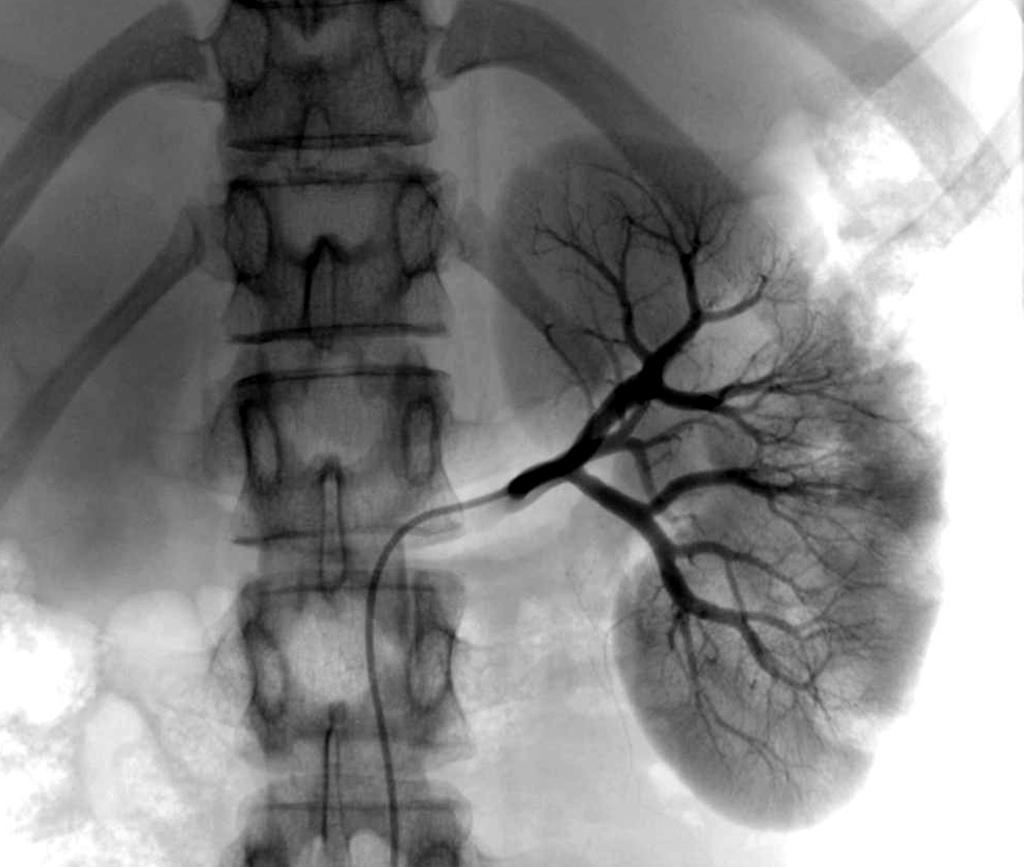Renal Angiogram: Procedure, Benefits, and Treatment Facilities in India
Understanding Renal Angiogram: An Essential Diagnostic Tool
What is Renal Angiogram?
Renal angiogram is a specialized diagnostic procedure that provides detailed imaging of blood vessels in the kidneys. It involves the use of contrast dye and X-ray imaging techniques to assess the structure and function of the renal arteries and veins.
 Benefits and Importance of Renal Angiogram
Benefits and Importance of Renal Angiogram
Renal angiogram plays a crucial role in diagnosing various kidney conditions, such as renal artery stenosis, renal vascular malformations, and kidney tumors. It helps doctors visualize the blood flow and identify any abnormalities or blockages within the renal blood vessels, aiding in the accurate diagnosis and treatment planning.
The Renal Angiogram Procedure
During a renal angiogram, the patient is positioned on an X-ray table, and a local anesthetic is administered to numb the area. A catheter is then inserted into a blood vessel, typically in the groin, and carefully threaded up to the renal blood vessels. Contrast dye is injected through the catheter, allowing the X-ray images to capture detailed information about the renal blood vessels' structure and function.
Renowned Treatment Facilities for Renal Angiogram in India
India is known for its advanced medical infrastructure and renowned treatment facilities that offer state-of-the-art renal angiogram procedures. These facilities have a team of experienced radiologists and skilled medical professionals who perform renal angiograms with precision and accuracy.
Consultation and Expert Evaluation
If you have symptoms or conditions that may require a renal angiogram, it is essential to consult with a nephrologist or a radiologist specializing in interventional procedures. They will evaluate your medical history, perform a thorough examination, and determine if a renal angiogram is necessary for your diagnosis and treatment.
Benefits of Renal Angiogram in Treatment Planning
Renal angiogram not only helps diagnose kidney conditions but also aids in treatment planning. By visualizing the blood vessels and identifying any abnormalities or blockages, doctors can make informed decisions regarding interventions such as angioplasty, stent placement, or surgical procedures to restore proper blood flow to the kidneys.
Post-Procedure Care and Recovery
After a renal angiogram, patients are closely monitored for a brief period to ensure stability and safety. Some individuals may experience mild discomfort at the catheter insertion site, which typically subsides within a short time. Following the procedure, doctors will provide specific post-procedure care instructions, including guidelines for physical activity, medication, and follow-up appointments.
In conclusion, renal angiogram is a vital diagnostic tool used to assess the blood vessels in the kidneys. It offers valuable insights into renal vascular conditions, aiding in accurate diagnosis and treatment planning. Renowned treatment facilities in India provide exceptional care and expertise in performing renal angiograms, ensuring accurate results and optimal patient outcomes.
Q&A
Q: What is a renal angiogram?
A: A renal angiogram is a diagnostic procedure used to visualize and assess the blood vessels in the kidneys.
Q: Why is a renal angiogram performed?
A: A renal angiogram is performed to diagnose and evaluate conditions such as renal artery stenosis, renal vascular malformations, and kidney tumors.
Q: How is a renal angiogram performed?
A: During a renal angiogram, a catheter is inserted into a blood vessel, contrast dye is injected, and X-ray images are taken to capture detailed information about the renal blood vessels.
Q: Where can I find renowned treatment facilities for renal angiograms in India?
A: India is home to renowned treatment facilities that specialize in renal angiogram procedures, offering advanced technology and experienced medical professionals.
Q: What are the benefits of a renal angiogram in treatment planning?
A: A renal angiogram provides valuable information about the structure and function of the renal blood vessels, helping doctors make informed decisions about interventions like angioplasty or stent placement to restore proper blood flow.
We are associated with experienced and highly skilled medical professionals. We use the latest medical technology available in the world and we provide medical services in collaboration with JCI & NABH Certified hospitals only. Our services include various types of treatment and organ restructuring and transplant.
